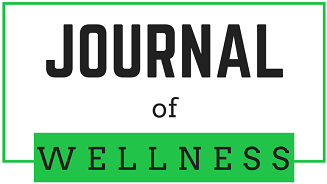
Abstract
Objectives/Background: The wellness of resident physicians, particularly in emergency medicine with its high rate of burnout, has become of paramount importance to residency programs. This study aims to evaluate the effects of the implementation of an evidence-based wellness curriculum on self-reported resident wellness across three emergency medicine residency programs.
Methods: This is a prospective, interventional study of the impact of a well-defined, longitudinal wellness curriculum administered to all categorical residents in three emergency medicine residency programs. Anonymous surveys incorporating the Perceived Stress Scale (PSS) and the Connor-Davidson Resilience Scale (CD-RISC) were administered before and after implementation of the wellness curriculum. The curriculum consisted of three modules (Introduction to Wellness, Dealing with Medical Errors, and Shame and Debriefing Traumatic Events in the Emergency Department) over 3 months. Participation was anonymous and voluntary, and all data collection and analysis were provided by a third-party not affiliated with residency program leadership.
Results: 64 out of 114 (56.1%) residents completed the pre-intervention survey and 58 (50.9%) residents completed the post-intervention survey. The mean of the PSS pre-intervention was 15.5 (SD±4.85) and post-intervention was 15.4 (SD±5.42) points while the mean of the CD-RISC was 75.1 (SD±8.9) pre-intervention and was 74.9 (SD±9.88) post-intervention. Both the PSS and CD-RISC scores showed an improvement post-intervention although only the CD-RISC was statistically significant (p=0.015). There was no statistically significant difference on either scoring system with respect to gender, post-graduate year of training, or residency training site.
Conclusions: Implementation of a wellness curriculum in our cohort of residents was shown to improve resilience amongst residents. Gender, post-graduate year of training, and residency training site did not affect these outcomes. This represents the first longitudinal residency wellness curriculum in emergency medicine that has a proven beneficial effect on residents.
DOI
10.18297/jwellness/vol1/iss1/7
Recommended Citation
Messman, Anne M.; Min-Venditti, Claire; Dubey, Elizebeth; Reed, Brian; Zhang, Hanhan; Bazzi, Hafez; and Paxton, James
(2019)
"Can We Actually Improve Resident Wellness? Pilot Data from a Longitudinal Wellness Curriculum for Emergency Medicine Residents,"
Journal of Wellness: Vol. 1
:
Iss.
1
, Article 7.
DOI: https://doi.org/10.18297/jwellness/vol1/iss1/7
Available at:
https://ir.library.louisville.edu/jwellness/vol1/iss1/7
